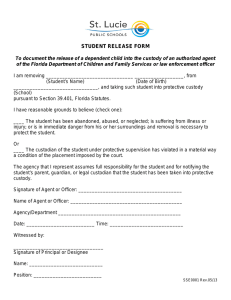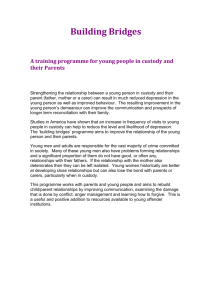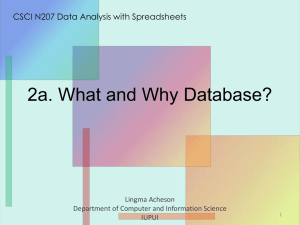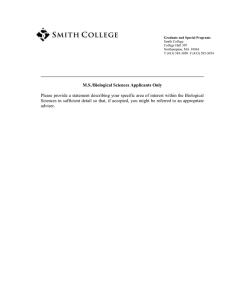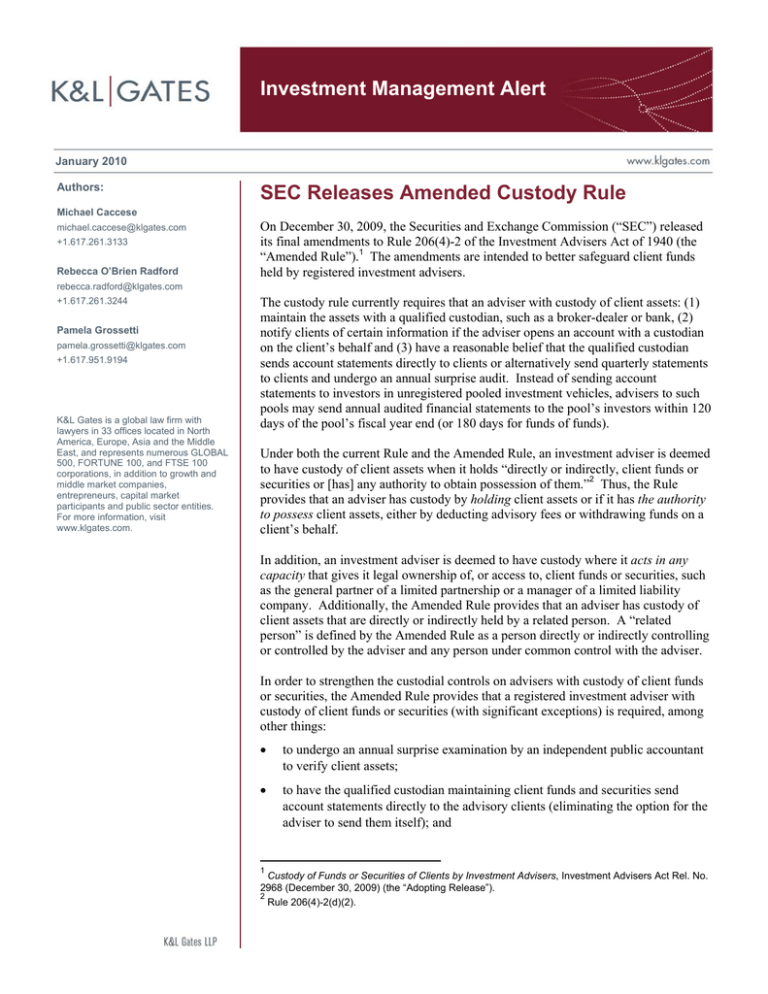
Investment Management Alert
January 2010
Authors:
SEC Releases Amended Custody Rule
Michael Caccese
michael.caccese@klgates.com
+1.617.261.3133
Rebecca O’Brien Radford
On December 30, 2009, the Securities and Exchange Commission (“SEC”) released
its final amendments to Rule 206(4)-2 of the Investment Advisers Act of 1940 (the
“Amended Rule”).1 The amendments are intended to better safeguard client funds
held by registered investment advisers.
rebecca.radford@klgates.com
+1.617.261.3244
Pamela Grossetti
pamela.grossetti@klgates.com
+1.617.951.9194
K&L Gates is a global law firm with
lawyers in 33 offices located in North
America, Europe, Asia and the Middle
East, and represents numerous GLOBAL
500, FORTUNE 100, and FTSE 100
corporations, in addition to growth and
middle market companies,
entrepreneurs, capital market
participants and public sector entities.
For more information, visit
www.klgates.com.
The custody rule currently requires that an adviser with custody of client assets: (1)
maintain the assets with a qualified custodian, such as a broker-dealer or bank, (2)
notify clients of certain information if the adviser opens an account with a custodian
on the client’s behalf and (3) have a reasonable belief that the qualified custodian
sends account statements directly to clients or alternatively send quarterly statements
to clients and undergo an annual surprise audit. Instead of sending account
statements to investors in unregistered pooled investment vehicles, advisers to such
pools may send annual audited financial statements to the pool’s investors within 120
days of the pool’s fiscal year end (or 180 days for funds of funds).
Under both the current Rule and the Amended Rule, an investment adviser is deemed
to have custody of client assets when it holds “directly or indirectly, client funds or
securities or [has] any authority to obtain possession of them.”2 Thus, the Rule
provides that an adviser has custody by holding client assets or if it has the authority
to possess client assets, either by deducting advisory fees or withdrawing funds on a
client’s behalf.
In addition, an investment adviser is deemed to have custody where it acts in any
capacity that gives it legal ownership of, or access to, client funds or securities, such
as the general partner of a limited partnership or a manager of a limited liability
company. Additionally, the Amended Rule provides that an adviser has custody of
client assets that are directly or indirectly held by a related person. A “related
person” is defined by the Amended Rule as a person directly or indirectly controlling
or controlled by the adviser and any person under common control with the adviser.
In order to strengthen the custodial controls on advisers with custody of client funds
or securities, the Amended Rule provides that a registered investment adviser with
custody of client funds or securities (with significant exceptions) is required, among
other things:
•
to undergo an annual surprise examination by an independent public accountant
to verify client assets;
•
to have the qualified custodian maintaining client funds and securities send
account statements directly to the advisory clients (eliminating the option for the
adviser to send them itself); and
1
Custody of Funds or Securities of Clients by Investment Advisers, Investment Advisers Act Rel. No.
2968 (December 30, 2009) (the “Adopting Release”).
2
Rule 206(4)-2(d)(2).
Investment Management Alert
•
unless client assets are maintained by an
independent custodian, to obtain a report of the
custodian’s internal controls relating to the
custody of those assets (typically a SAS-70
Report) from an independent public accountant
registered with the Public Company Accounting
Oversight Board (“PCAOB”).
Amended Rule, a related person with custody of
client assets would be presumed not to be
operationally independent of the adviser unless the
adviser can meet the Amended Rule’s conditions for
“operational independence” and no other
circumstances exist that can reasonably be expected
to compromise its operational independence.5
The majority of the SEC’s proposed changes
discussed in our Client Alert released on May 27,
20093 were adopted. The following discussion
covers key portions of the Amended Rule, including
modifications from the proposed rule.
Unregistered Pooled Investment Vehicles
The Amended Rule also exempts from the annual
surprise examination requirement an adviser to an
unregistered pooled investment vehicle that is
subject to an annual financial statement audit by an
independent public accountant, and that distributes
audited financial statements prepared in accordance
with generally accepted accounting principles to the
pool’s investors. Such audits will satisfy the annual
surprise examination requirement only if they are
performed by a PCAOB-registered independent
public accountant. Upon the liquidation of the pool,
advisers that distribute a pool’s audited financial
statements to investors must obtain a final audit of
the pool’s financial statements and distribute the
statements to investors promptly after the audit is
complete. The liquidation audit is in addition to
obtaining an annual audit.
Annual Surprise Examination
The Amended Rule requires that investment advisers
with custody of client assets undergo an annual
surprise examination by an independent public
accountant to verify those assets.
In a significant departure from the proposed Rule,
the SEC has created exceptions from the annual
surprise examination for the following groups:
Advisers “Operationally Independent” of
Related Custodians
Where an adviser is deemed to have custody merely
as a result of a related person acting as custodian, the
adviser will not be required to undergo the annual
surprise examination if: (i) the adviser is deemed to
have custody solely because its related person holds
client assets; and (ii) the adviser is “operationally
independent”4 of its related custodian. Under the
3
SEC Proposes Amendments to Custody Rule (May 27, 2009)
http://www.klgates.com/newsstand/Detail.aspx?publication=56
67
4
See Amended Rule 206(4)-2(d)(5) (defining “operationally
independent”). The conditions set out in the Rule are: (i) client
assets in the custody of the related person are not subject to
claims of the adviser’s creditors; (ii) advisory personnel do not
have custody or possession of, or direct or indirect access to,
client assets of which the related person has custody, or the
power to control the disposition of such client assets to third
parties for the benefit of the adviser or its related persons, or
otherwise have the opportunity to misappropriate such client
assets; (iii) advisory personnel and personnel of the related
person who have access to advisory client assets are not
under common supervision; and (iv) advisory personnel do not
hold any position with the related person or share premises
with the related person.
Advisers Deemed to Have Custody Solely
Because of Fee Deduction
Advisers deemed to have custody of client funds
and securities solely because they have authority to
withdraw advisory fees from client accounts are not
required to undergo a surprise annual examination.
The SEC noted that it was convinced by many
commenters that requiring an annual surprise
examination for advisers deemed to have custody
solely because of fee deduction would not provide
materially greater protection to advisory clients.
The Rule provides that such advisers must have a
reasonable belief that a qualified custodian provides
5
The SEC staff has withdrawn the Crocker Investment
Management Corp., No-Action Letter (April 14, 1978)
(“Crocker”) and its progeny. Crocker set forth factors the SEC
staff would consider in determining whether an adviser has
indirect custody through its related person. An adviser who
relied on these letters in the past must comply with the
Amended Rule.
January 2010
2
Investment Management Alert
account statements directly to clients, as discussed
below.6
Delivery of Account Statements
The Amended Rule generally provides that advisory
clients must receive account statements directly
from the qualified custodian. This requirement
applies to advisers deemed to have custody solely
because of fee withdrawals. This amendment
eliminates the alternative delivery method, whereby
an adviser could send quarterly account statements
to clients if it underwent a surprise examination by
an independent public accountant at least annually.
As discussed above, advisers must have a reasonable
belief formed after “due inquiry” that a qualified
custodian provides account statements directly to
clients.7 The SEC did not require a specific method
for establishing a reasonable belief after “due
inquiry,” stating rather that advisers may determine
how best to meet this requirement. Nonetheless, as
an example, it stated that one method would be for
the custodian to provide the adviser with a copy of
the account statement that was delivered to the
client. Advisers to unregistered pooled investment
vehicles, however, are exempt from this requirement
if they undergo annual audits by an independent
public accountant registered with the PCAOB and
their audited financial statements are distributed to
all investors in the pool within 120 days of the
pool’s fiscal year end (or 180 days for funds of
funds). If a pool does not distribute the audited
financial statements within 120 days (or 180 days
for fund of funds), the adviser must obtain an annual
surprise examination and must have a reasonable
basis, after due inquiry, for believing that the
qualified custodian sends account statements to pool
investors.
6
The SEC also stated that advisers should have policies and
procedures that take into account how and when clients will be
billed and that are designed to ensure the accuracy of the fees
billed.
7
The SEC addressed concerns raised by commentators that
delivery of account statements by a custodian may hinder a
client’s desire for privacy. The SEC stated that in light of
recent frauds, the protections provided by direct delivery of
account statements by custodians are of substantially greater
value than privacy and confidentiality concerns, which could be
addressed contractually.
Internal Control Reports
An adviser or related person who acts as a qualified
custodian, such as a broker-dealer or bank that is
under common control with the adviser, is required
to obtain or to receive from its related person a
written report relating to custody of client assets.8
The internal control report must contain a
description of control objectives, controls, an
accountant’s tests of the controls, and the results of
those tests. A report describing both the controls
placed in operation and the tests of the controls’
effectiveness (commonly referred to as a “SAS-70
Report”) would satisfy this requirement. However,
the SEC is not requiring a specific type of report, as
long as the objectives detailed in the Rule’s
proposing release9 are addressed. Therefore, an
accountant may leverage audit work already
performed to satisfy existing regulatory
requirements or work performed for client reporting
in complying with this requirement.10 The adviser
must maintain the internal control report in its
records and make it available to the SEC staff upon
request.
Privately Offered Securities
The Rule provides that privately offered securities
will now be subject to verification under the annual
surprise examination requirement and are only
exempt from the requirement that they be
maintained by a qualified custodian. In other
words, if an adviser has custody of privately offered
securities, the adviser will be subject to the annual
surprise examination requirement.11 In a
8
The Adopting Release clarifies that an adviser whose
related person has custody of the adviser’s clients’ assets
must obtain from its related custodian an internal control
report even in cases where the related custodian is
operationally independent of the adviser.
9
Custody of Funds or Securities of Clients by Investment
Advisers, Investment Advisers Act Rel. No. 2876 (May 20,
2009).
10
In addition to the SAS 70, the SEC identified another
report that would satisfy this requirement: a report issued in
conjunction with an examination in accordance with the
American Institute of Certified Public Accountants’ standards
AT Section 601, Compliance Attestation (“AT 601”). AT 601
provides guidance to accountants for engagements related to
either a firm’s compliance with the requirements of particular
laws or rules, or the effectiveness of the firm’s internal controls
over compliance with those particular requirements.
11
However, in the Adopting Release, the SEC clarified that
an adviser may maintain custody of privately offered securities
January 2010
3
Investment Management Alert
companion release, the SEC instructed auditors to
confirm the privately offered securities with their
issuer or counterparty.12 If confirmation cannot be
obtained, the auditors must establish alternative
procedures.13
Compliance Policies and Procedures
The SEC instructed advisers with custody of client
assets to adopt and implement written policies and
procedures reasonably designed to prevent violations
of the Rule.
Form ADV
The SEC adopted changes to Form ADV, Items 7 of
Part 1A and 9 of Part 1A, and Section 7.A of
Schedule D. The amendments require registered
advisers to provide more detailed information about
their custody practices in their registration form.
Item 7 of Part 1A requires an adviser to report all
related persons who are broker-dealers and to
identify those that serve as qualified custodians with
respect to client assets. Item 9 of Part 1A requires
an adviser with custody, including one deemed to
have custody through related persons, to report the
amount of client assets and the number of clients for
whom the adviser has custody. Advisers deemed to
have custody solely due to fee deduction may
continue to answer “no” to Item 9.A (“Do you have
custody of any advising clients’ cash or bank
accounts [or] securities?”). Schedule D of Form
ADV includes additional items requiring advisers to
identify accountants that perform audits, surprise
examinations and internal control reports, as well as
to list related persons that serve as qualified
custodians.
without being subject to the new requirements that apply to
advisers that maintain custody of client assets as qualified
custodians (set forth in paragraph (a)(6) of the Rule), including
obtaining an Internal Control Report, because the adviser need
not be a qualified custodian to maintain custody of those
securities.
12
Commission Guidance Regarding Independent Public
Accountant Engagements Performed Pursuant to Rule 206(4)2 Under the Investment Advisers Act of 1940, Investment
Advisers Act Rel. No. 2969 (December 30, 2009) (“Guidance
for Accountants”).
13
Id.
Form ADV-E
The SEC adopted the following three amendments
to the instructions to Form ADV-E, the form used
as a cover page for a certificate of accounting of an
adviser: (i) the form and the accompanying
accountant’s examination certificate must be filed
electronically through the Investment Adviser
Registration Depository (“IARD”); (ii) the surprise
examination certificate must be filed within 120
days of the time chosen by the accountant for the
surprise examination; and (iii) a termination
statement must be filed by an accountant within four
business days of its resignation, dismissal, or
removal. The latter amounts to a “noisy
withdrawal” intended to alert the SEC to the
accountant’s resignation on the theory that it might
signal irregularities.
Effective and Compliance Dates
The SEC maintains that the Rule, together with its
accompanying guidance for accountants,14 will
provide for a more robust set of controls designed to
prevent client assets from being lost, misused and
misappropriated. The Amended Rule’s effective
date is March 12, 2010 (the “Effective Date”). The
following chart outlines compliance dates for
various provisions of the Rule:
14
Guidance for Accountants, the companion release to the
Adopting Release, updates examination methodology dating
back to 1966 that required verification of all client assets. The
SEC believes the new guidance will help lower the cost of
complying with the Amended Rule.
January 2010
4
Investment Management Alert
Adviser Type or Rule
Compliance Date
Amended Rules 206(4)-2, 204-2, and
Forms ADV and ADV-E (generally)
On and after the Effective Date of the Rule amendments.
Investment advisers required to obtain
surprise examinations
(a) First surprise examination must take place by December 31,
2010.
(b) For advisers that become subject to the Rule after the
Effective Date: within six months of becoming subject to the
requirement.
(c) If an adviser maintains client assets as a Qualified Custodian,
the first surprise examination must occur no later than six months
after obtaining the internal control report.
Investment advisers required to obtain or
receive an internal control report
Advisers to pooled investment vehicles
Forms ADV and ADV-E
The adviser must obtain or receive from its related person an
internal control report within six months of becoming subject to
the requirement.
The adviser may rely on the annual audit provision if the adviser
(or a related person) becomes contractually obligated to obtain an
audit of financial statements for fiscal years beginning on or after
January 1, 2010.
Advisers must provide responses to Form ADV in their first
annual amendment after January 1, 2011. Until the IARD system
is updated, accountants performing surprise examinations must
continue to file Form ADV-E in paper form.
Anchorage Austin Beijing Berlin Boston Charlotte Chicago Dallas Dubai Fort Worth Frankfurt Harrisburg Hong Kong London
Los Angeles Miami Newark New York Orange County Palo Alto Paris Pittsburgh Portland Raleigh Research Triangle Park
San Diego San Francisco Seattle Shanghai Singapore Spokane/Coeur d’Alene Taipei Washington, D.C.
K&L Gates is a global law firm with lawyers in 33 offices located in North America, Europe, Asia and the Middle East, and represents numerous
GLOBAL 500, FORTUNE 100, and FTSE 100 corporations, in addition to growth and middle market companies, entrepreneurs, capital market
participants and public sector entities. For more information, visit www.klgates.com.
K&L Gates comprises multiple affiliated partnerships: a limited liability partnership with the full name K&L Gates LLP qualified in Delaware and
maintaining offices throughout the United States, in Berlin and Frankfurt, Germany, in Beijing (K&L Gates LLP Beijing Representative Office), in
Dubai, U.A.E., in Shanghai (K&L Gates LLP Shanghai Representative Office), and in Singapore; a limited liability partnership (also named K&L
Gates LLP) incorporated in England and maintaining offices in London and Paris; a Taiwan general partnership (K&L Gates) maintaining an office in
Taipei; and a Hong Kong general partnership (K&L Gates, Solicitors) maintaining an office in Hong Kong. K&L Gates maintains appropriate
registrations in the jurisdictions in which its offices are located. A list of the partners in each entity is available for inspection at any K&L Gates office.
This publication is for informational purposes and does not contain or convey legal advice. The information herein should not be used or relied upon
in regard to any particular facts or circumstances without first consulting a lawyer.
©2009 K&L Gates LLP. All Rights Reserved.
January 2010
5
Custody Analysis by K&L Gates LLP of
Rule 206(4)-2 under the Investment Advisers Act of 1940 (the “Custody Rule”)
A. DO YOU HAVE
CUSTODY?
Do you have:
a. possession of
client funds or
securities;
b. arrangement
under which you
are authorized
to withdraw
client funds or
permitted to
withdraw client
funds or
securities
maintained with
a custodian
NO
NO
c. any capacity that
gives you or your
supervised
person legal
ownership of or
access to client
funds or
securities (e.g.,
general partner
and investment
adviser)?
YES
YES
YES
If the Custody
Rule applies,
you must obtain
an Internal
Control Report.
NO
d. a Related Person
that holds, directly
or indirectly, client
funds or securities,
or has any authority
to obtain
possession of
them, in connection
with advisory
services you
provide to clients?
YES
Go to B to determine if
the Custody Rule
applies.
If the Custody Rule
applies, you are excepted
from the Surprise Annual
Examination.
Go to B to determine if
the Custody Rule applies.
Do you: (i) have custody solely as a result
of a related person holding client assets;
and (ii) is your related person
“operationally independent” of you?
NO
YES
B. DOES THE CUSTODY RULE APPLY?
Is your client a registered investment company?
YES
NO
You are not required to
comply with the Custody
Rule with respect to the
account of a registered
investment company.
C. Is your client an unregistered
pooled investment vehicle?
If the Custody Rule applies,
you are excepted from the
Surprise Annual
Examination. Go to B to
determine if the Custody
Rule applies.
YES
NO
D. Do you advise your client with respect to “privately
offered securities”?
YES
NO
You must comply with the
Custody Rule; however, you are
not required to maintain
investments in privately offered
securities with a Qualified
Custodian. Privately offered
securities are subject to the
Surprise Annual Examination.
Financial Statement Audit
Does the pooled investment
vehicle:
undergo an audit at least
annually; and
distribute its audited financial
statements prepared in
accordance with GAAP within
120 days of the end of its fiscal
year (or 180 days if the pooled
investment vehicle is a “Fund
of Funds”)?
NO
YES
You are excepted from the Surprise Annual Examination
and distribution of statements by a Qualified Custodian
Does the pooled investment vehicle invest in
“privately offered securities”?
E. Do you advise your client with respect to mutual fund
shares?
YES
YES
You must comply with the
Custody Rule, although you
may use a transfer agent or a
Qualified Custodian. Mutual
fund shares are subject to the
Surprise Annual Examination.
NO
You must comply with the Custody Rule;
however, if you comply with the Financial
Statement Audit, you are not required to
maintain investments in privately offered
securities with a Qualified Custodian (or have
the Qualified Custodian distribute account
statements). Privately offered securities are
subject to the Surprise Annual Examination.
F. You must comply with the Custody Rule.
NO
You do
not have
to comply
with the
Custody
Rule.
NO
Go to E.
If the
Custody
Rule
applies, you
must obtain
an Internal
Control
Report from
your
Related
Person. Go
to B to
determine if
the Custody
Rule
applies.
APPENDIX: Definitions
1. Financial Statement Audit: Pooled investment vehicle is subject to audit by an independent public
accountant registered with the Public Company Accounting Oversight Board at least annually and
distributes audited financial statements prepared in accordance with GAAP to all beneficial owners
within 120 days of the end of its fiscal year or, in the case of a Fund of Funds, within 180 days of the
end of its fiscal year. Additionally, upon liquidation the pooled investment vehicle is subject to audit
and distributes audited financial statements prepared in accordance with GAAP to all beneficial
owners promptly after the completion of the audit. Non-US based funds may prepare their audited
financial statements in accordance with local GAAP, so long as differences to US GAAP are
reconciled.
2. Fund of Funds: A limited partnership, limited liability company, or another type of pooled investment
vehicle that invests 10% or more of its assets in other pooled investment vehicles that are not, and
are not advised by, a related person of the limited partnership, its general partner, or its adviser.
3. Internal Control Report: When an adviser or its related person serves as a Qualified Custodian for
advisory client funds or securities, the adviser must obtain, or receive from its related person, no less
frequently than once each calendar year, a written report, which includes an opinion from an
independent public account with respect to the adviser’s or related person’s controls relating to
custody of client assets, such as a Type II SAS 70 report.
4.
Operationally Independent: A related person is “operationally independent” of the adviser: if: (i)
client assets in the custody of the related person are not subject to claims of the adviser’s creditors;
(ii) advisory personnel do not have custody or possession of, or direct or indirect access to, client
assets of which the related person has custody, or the power to control the disposition of such client
assets to third parties for the benefit of the adviser or its related persons, or otherwise have the
opportunity to misappropriate such client assets; (iii) advisory personnel and personnel of the related
person who have access to advisory client assets are not under common supervision; and (iv)
advisory personnel do not hold any position with the related person or share premises with the related
person.
5. Privately Offered Securities: Securities that are:
a. Acquired from the issuer in a transaction or chain of transactions not involving any public offering;
b. Uncertificated, and ownership thereof is recorded only on the books of the issuer or its transfer
agent in the name of the client; and
c. Transferable only with the prior consent of the issuer or holders of the outstanding securities of
the issuer.
6. Related Person: A related person means any person, directly or indirectly, controlling or controlled
by the adviser, and any person that is under common control with the adviser.
7. Surprise Annual Examination: Client funds and securities for which the adviser has custody are
verified by actual examination at least once during each calendar year, except as provided below, by
an independent public accountant, pursuant to a written agreement, at a time that is chosen by the
accountant without prior notice or announcement and that is irregular from year to year. Advisers
currently subject to the Custody Rule must have their first surprise annual examination conducted
before December 31, 2010.
The written agreement must provide for the first examination to occur within six months of becoming
subject to the Amended Rule (if you become subject to the Rule after the Effective Date), except that,
if client funds or securities are maintained at a qualified custodian, the agreement must provide for
the first examination to occur no later than six months after obtaining the internal control report. The
written agreement must require the accountant to:
(i) file a certificate on Form ADV-E with the Securities and Exchange Commission (“SEC”) within
120 days of the time chosen by the accountant;
(ii) upon finding any material discrepancies during the course of the examination, notify the SEC
within one business day of the finding; and
(iii) upon resignation or dismissal from, or other termination of, the engagement, or upon
removing itself or being removed from consideration for being reappointed, file within four
business days Form ADV-E accompanied by a statement that includes:
(A) the date of such resignation, dismissal, removal, or other termination, and the name,
address, and contact information of the accountant; and
(B) an explanation of any problems relating to examination scope or procedure that
contributed to such resignation, dismissal, removal, or other termination.
8. Qualified Custodian: A qualified custodian means (i) a bank as defined in section 202(a)(2) of the
Investment Advisers Act of 1940 or a savings association as defined in section 3(b)(1) of the Federal
Deposit Insurance Act that has deposits insured by the Federal Deposit Insurance Corporation
under the Federal Deposit Insurance Act ; (ii) a broker-dealer registered under section 15(b)(1) of the
Securities Exchange Act of 1934, holding the client assets in customer accounts; (iii) a futures
commission merchant registered under section 4f(a) of the Commodity Exchange, holding the client
assets in customer accounts, but only with respect to clients’ funds and security futures, or other
securities incidental to transactions in contracts for the purchase or sale of a commodity for future
delivery and options thereon; and (iv) a foreign financial institution that customarily holds financial
assets for its customers, provided that the foreign financial institution keeps the advisory clients’
assets in customer accounts segregated from its proprietary assets.


